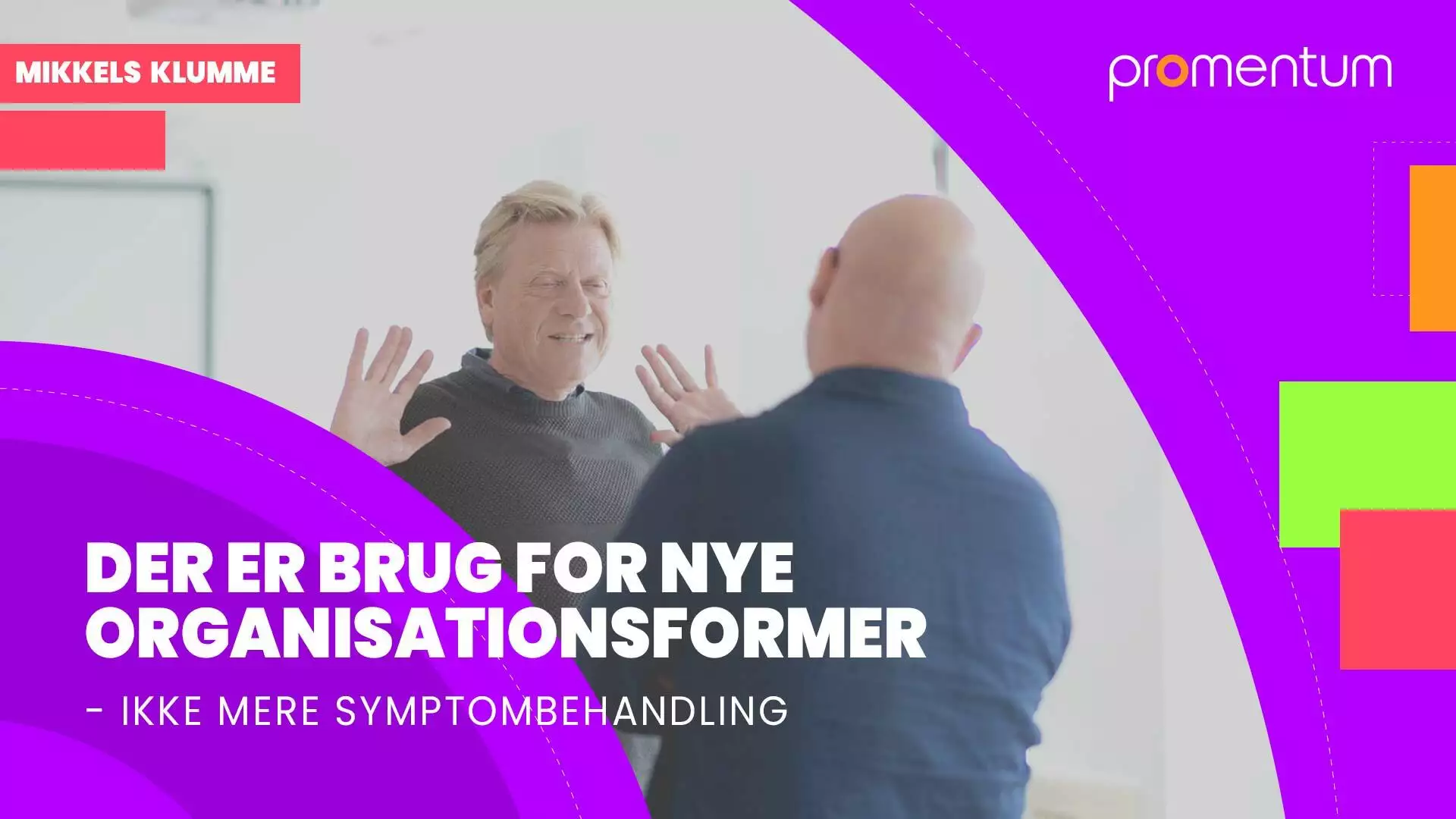Our organisations are unhealthy to be in.
This is documented by numerous stress and well-being studies. Stress and poor well-being have become widespread societal issues. An epidemic. Our organisations break us down and make us ill. Our work lives are detrimental to our health. And its just getting worse and worse.
Despite substantial efforts to reverse this trend, these efforts have proven largely ineffective.
We see an increasing number of individuals struggling with well-being issues and succumbing to stress. This is happening despite the enormous resources we allocate to stress management, well-being initiatives and processes aimed at improving the work environment.
If you ask me, the persistent rise in these issues is due to our failure to address the problem. We are only treating the symptoms.
We provide psychologists for stress management programs and consultations, offer opportunities for remote work, incorporate artificial breaks into the workday and even consider implementing a four-day workweek etc.
We resort to all sorts of measures, both feasible and infeasible, to help employees survive the daily demands of our organisations. We create spaces and times where employees can find respite from organisational pressures, allowing them to recover and regain strength—all to prepare them for another cycle within the organisation.
We must move away from exclusively treating the symptoms. We need to identify the unhealthy and harmful aspects of our organisations and develop new and more regenerative organisational models.
We must create organisations that are healing, developmental and life-enhancing. Organisations where individuals are replenished with vitality, joy, energy, closeness, security, professionalism and humanity.
Organisations where employees may arrive somewhat worn out in the morning, but leave in the afternoon feeling energized and happier – because the organisation is beneficial and nurturing.
We must create organisations that counteract stress and poor well-being rather than contributing to and merely treating these issues.
Interested in learning more about regenerative practices?
If you would like to hear more about Mikkel’s views on regenerative organisations, check out ‘Lyden af Promentum’ (The Sound of Promentum – danish speaking) There, you can hear him discuss “The Regenerative Leadership Star.”
